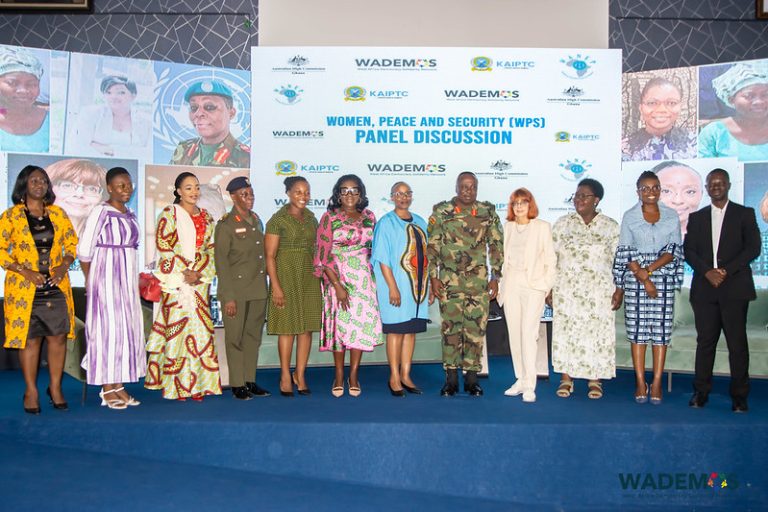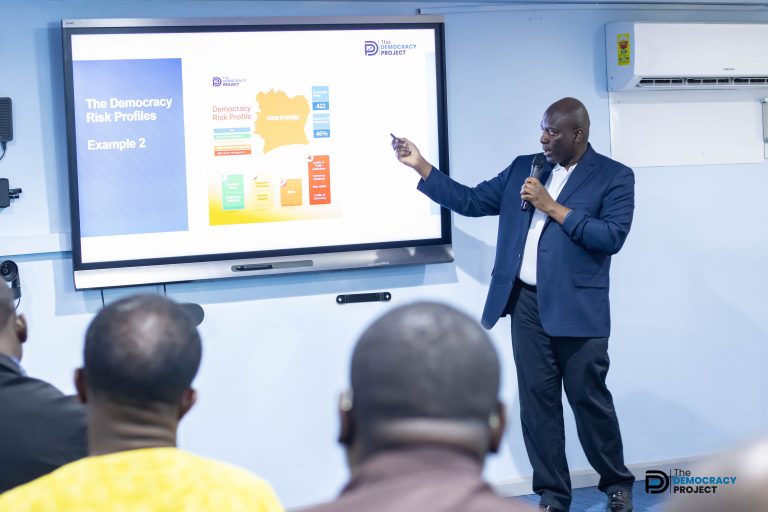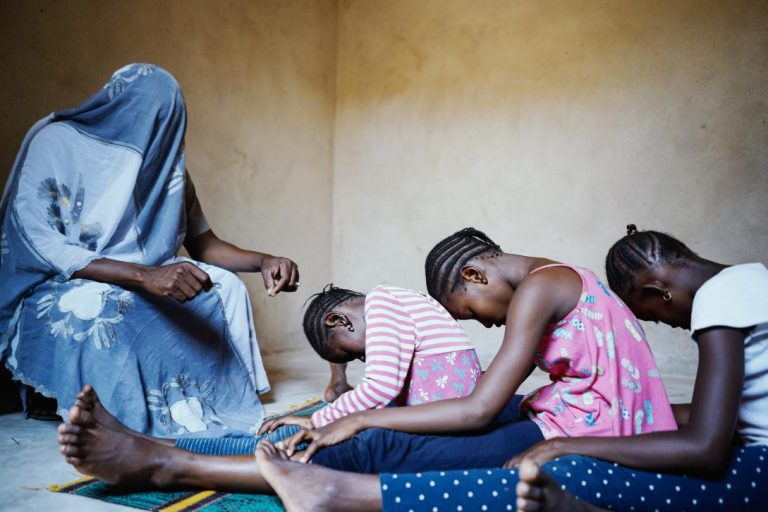About 40 Civil Society organisations (CSOs) from the 15 West African countries have launched the West Africa Democracy Solidarity Network (WADEMOS) to address democratic backsliding and collapse as well as strengthen democracy in the sub-region.
This held at a two-day event, between Thursday and Friday, in Accra, Ghana. It coincided with this year’s edition of the United Nations (UN) International Day of Democracy which holds annually on 15 September.
The event brought together officials of the Economic Community of West African States (ECOWAS), the Ghanaian government, diplomatic corps and members who came together from Nigeria and other countries in the sub-region to form WADEMOS.
Speakers took turns to condemn the recent democratic collapse and backsliding in some West African countries and called for joint efforts to restore the reputation that West Africa earned leading the third wave of democratisation in Africa in the 1990s.
They applauded the emergence of WADEMOS as timely in complementing the efforts of ECOWAS and other pro-democracy actors to arrest the decline and collapse of democracy in the region.
Since 2020, there have been successful coups in Mali, Guinea and Burkina Faso, and failed attempts in Niger and Guinea Bissau.
Also in many West African countries, some leaders muzzle opposition, stifle the multi-party system and wantonly tinker with their national constitutions to cling on to power.
Democracy in distress
At the launching of WADEMOS on Thursday, the Executive Director, Centre for Democratic Development (CDD), Ghana, Kwasi Prempeh, said, “Even in countries that have not faced democratic collapse, the quality of democracy and governance leaves much to be desired”.
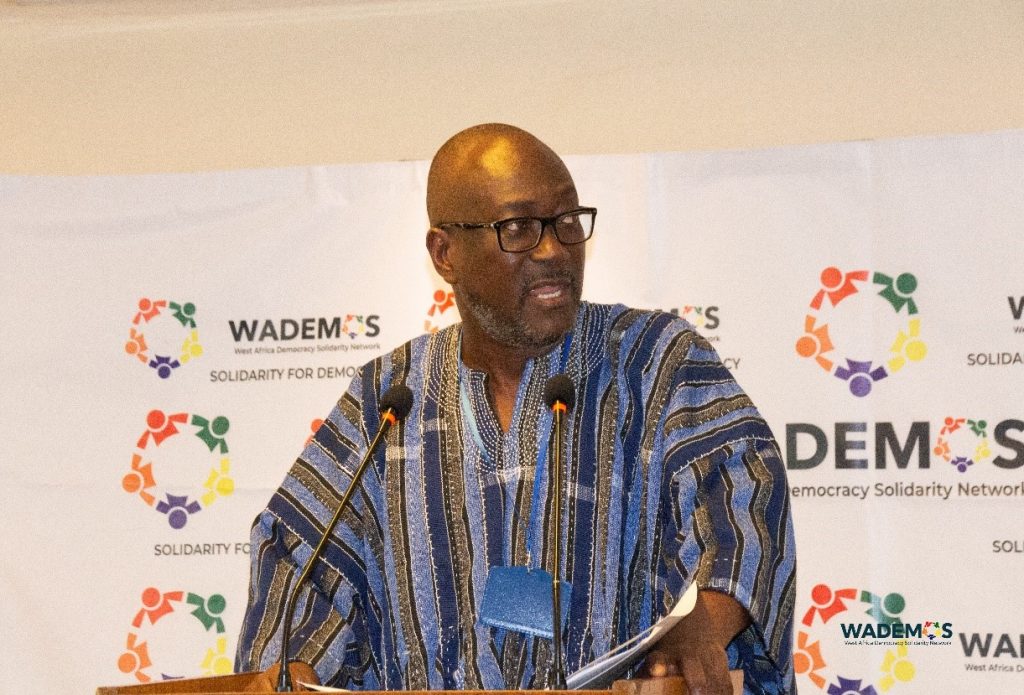
“Democratic backsliding in West Africa represents a major setback for our region and it’s a source of grave concern for its people,” Mr Prempeh said.
He recalled West Africa’s leadership roles in “the so-called third wave of democratisation in Africa beginning with the Benin historic national conference in 1990”.
“Continuing democratic decline with the risk of democratic breakdown in a few more countries will spell more disaster for the region. The future of West Africa, nearly 400 million people, is at stake,” he said.
In a similar vein, the Head of Regional Development Cooperation in Africa, the Swedish International Development Cooperation Agency, Ulla Andren, said, “There is now growing evidence of democratic backsliding” in the region.
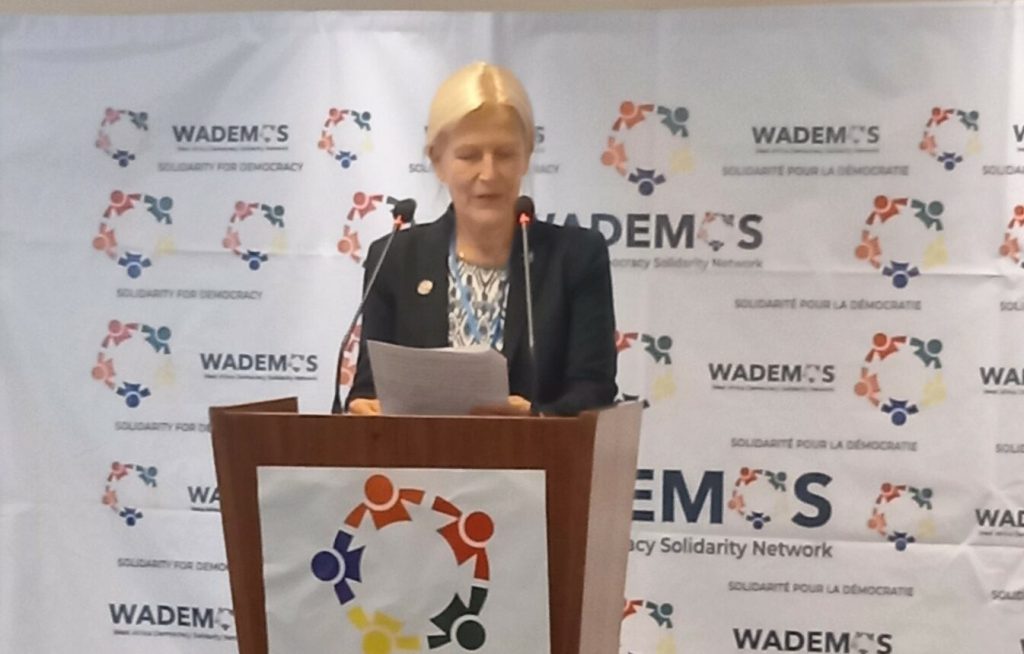
She pointed out that several countries had been affected by illegal means of power transfer, coup d’état or illegal amendment of the national constitutions to extend the incumbents’ stay in office.
Worrying coups, freedom under threat in Nigeria, four others
On her part, Kamissa Camara, a former Minister of Foreign Affairs of Mali, who now serves as Senior Advisor for Africa to the United States Institute of Peace, said “It is hard to believe what we are seeing recently”.
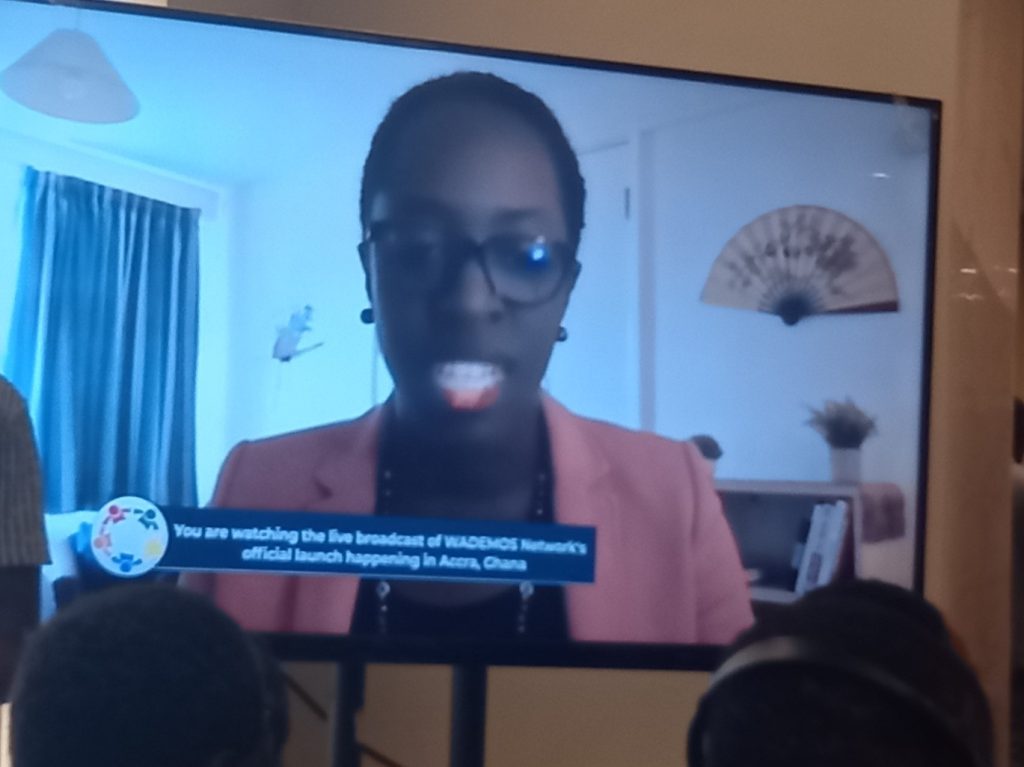
“Despite its democratic gains, the ECOWAS region has suffered a major democratic decline. A significant number of heads of state are tampering with the constitutions to undermine a term limit within the countries and to retain power,” Ms Camara said.
She noted that Africa “is obviously tormented by a spate of military coups,” adding that “since 2010 there have been over 40 military coups and attempted coups.”
She added that “20 out of this number, about 50 per cent of the total coups that happened in Africa occurred in West Africa and the Sahel region.”
“Since 2019, there have been seven coups with five successful and two failed.”
She also cited the Freedom House’s newly released Freedom in the World report, which indicates that of the 12 worst performing countries with the largest year-on-year score declines around the world in 2019, five are in West Africa – Benin, Burkina Faso, Guinea, Mali, and Nigeria.
ECOWAS Protocols
Ghanaian Deputy Minister for Foreign Affairs and Regional Integration, Thomas Mbomba, observed that the constitutional breaches in different West African countries are “against ECOWAS protocol on conflict prevention, management and resolution, peacekeeping and security among others.”
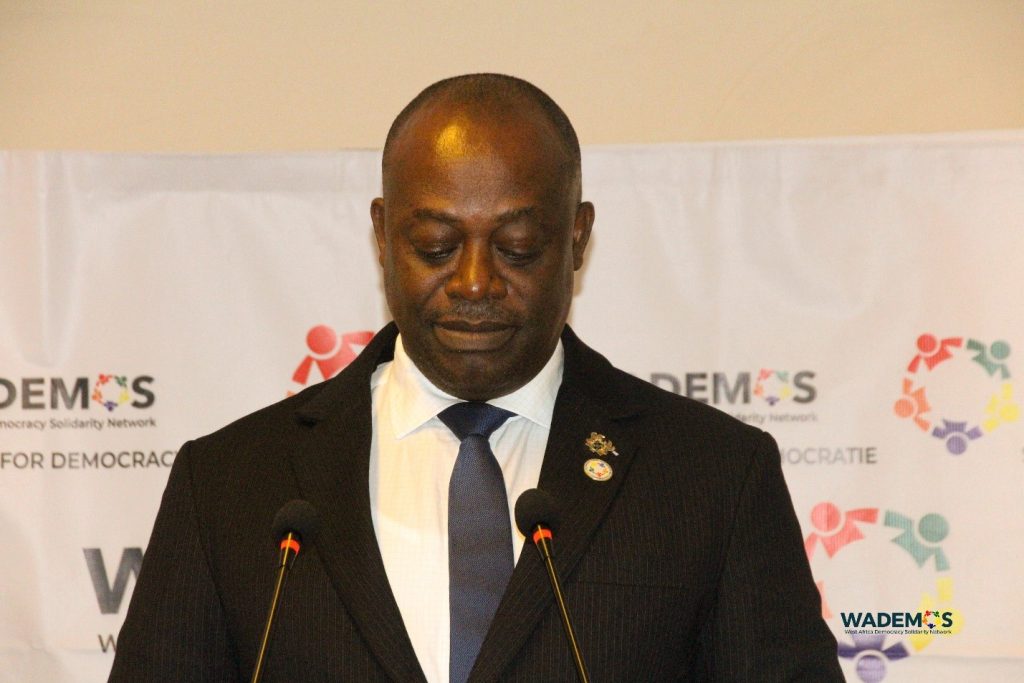
Similarly, Mr Prempeh noted that the ECOWAS Protocol on Democracy and Good Governance “sets standards and benchmarks to promote regional convention towards constitutional order.
“This West African legal instrument provides us with a useful rally point and framework for mobilisation to counter democratic backsliding and reinvigorating democratic processes and institutions across the region,” he said.
ECOWAS roles
ECOWAS Resident Representative to Ghana, Baba Gana Wakil, identified steps the regional body had taken to address the “alarming democratic backsliding” witnessed since 2020.
Principal among the steps, Mr Wakil said, is an ongoing effort to review the 2001 ECOWAS Protocol on Democracy and Good Governance “with several new bold provisions”.
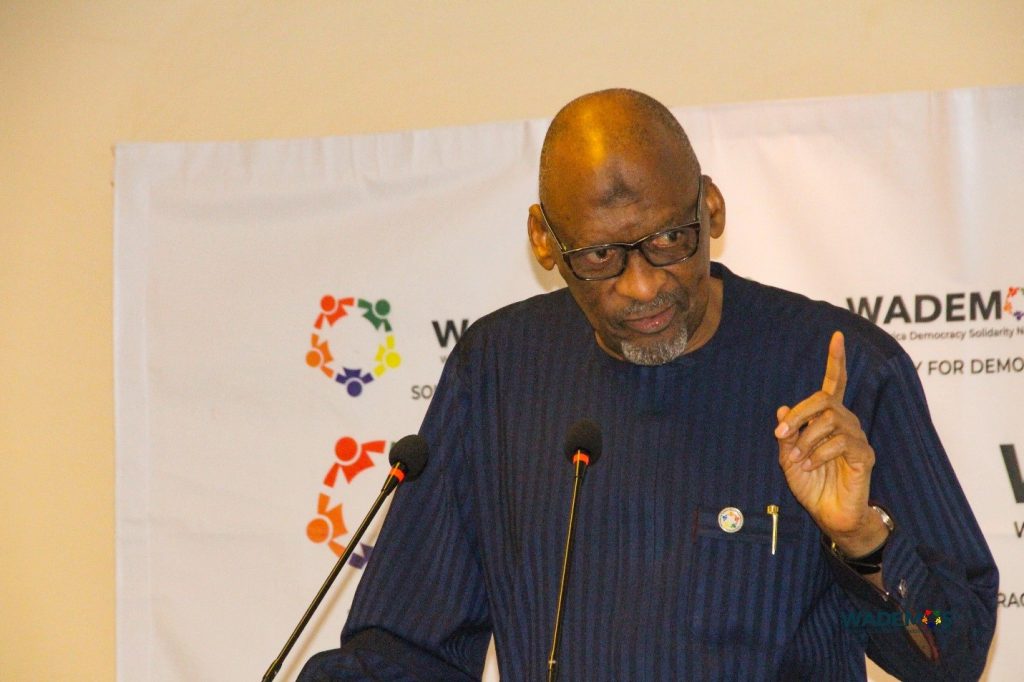
Among other measures, Mr Wakil said, ECOWAS had set up high-level mediators to interface with higher authorities of member countries faced with political crises – Mali, Guinea and Burkina Faso.
He also said the regional body had unfolded various regional Action Plans, including counter-terrorism action plans from 2020 to 2024 to address “some of the stubborn drivers of insecurity in the sub-region”.
Hope, solution
Ms Camara cited a report by Afrobarometer which reveals that 76 per cent of West Africans still prefer democracy to any form of government “despite the apparent popular support that military governments have received in the region recently.”
“Democracy indeed has a chance of survival if the people see reasons to protect it,” she said.
She added that the focus should shift from waiting for breaches to happen before acting to taking more preventive measures.
“We now need to find a way to prevent unconstitutional means of change of government,” she said, adding that the region should no longer wait for breaches to occur before taking steps.
She applauded the formation of a transnational democracy network like WADEMOS as timely in helping “to mobilise, to coordinate and to leverage the collective power of pro-democracy actors”.
Abdel Fatau, the Head of Political Affairs, Peace and Security of ECOWAS hailed WADEMOS for the “community of knowledge” it promises to bring in supporting democracy.
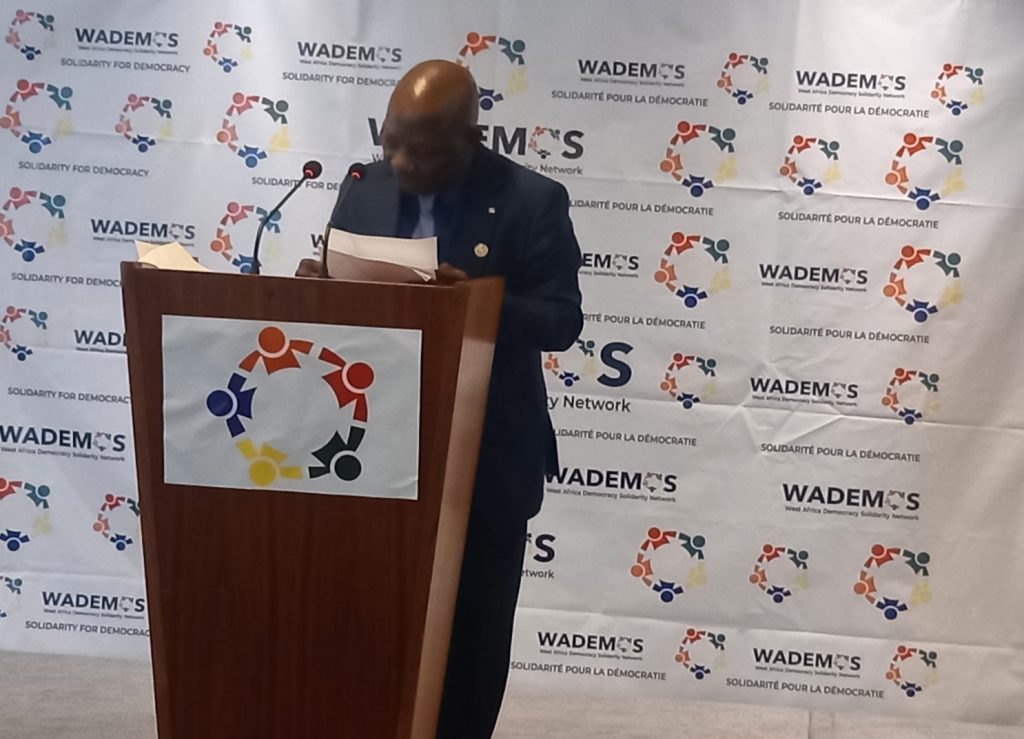
WADEMOS
WADEMOS is a non-partisan and independent civil society-led transnational democracy solidarity network.
Funded by the Sweden International Development Cooperation, and the Open Society Foundation, WADEMOS which is located in 15 member states of ECOWAS, has its secretariat at CDD, Ghana office.
On Thursday, Mr Prempeh, who heads the WADEMOS secretariat in Accra, noted that the network had adopted strategic priorities to cover the period 2022 to the end 2024.
These include supporting frontline democracy defenders, activists, human rights campaigners and others that face repressive legislation and authoritarian attacks in their countries.
Mr Pempreh also said the network would also focus on countries that have experienced recent democratic collapse.
Source: www.premiumtimesng.comhttps://www.premiumtimesng.com/news/top-news/554714-west-african-csos-launch-pro-democracy-network-in-ghana.html

